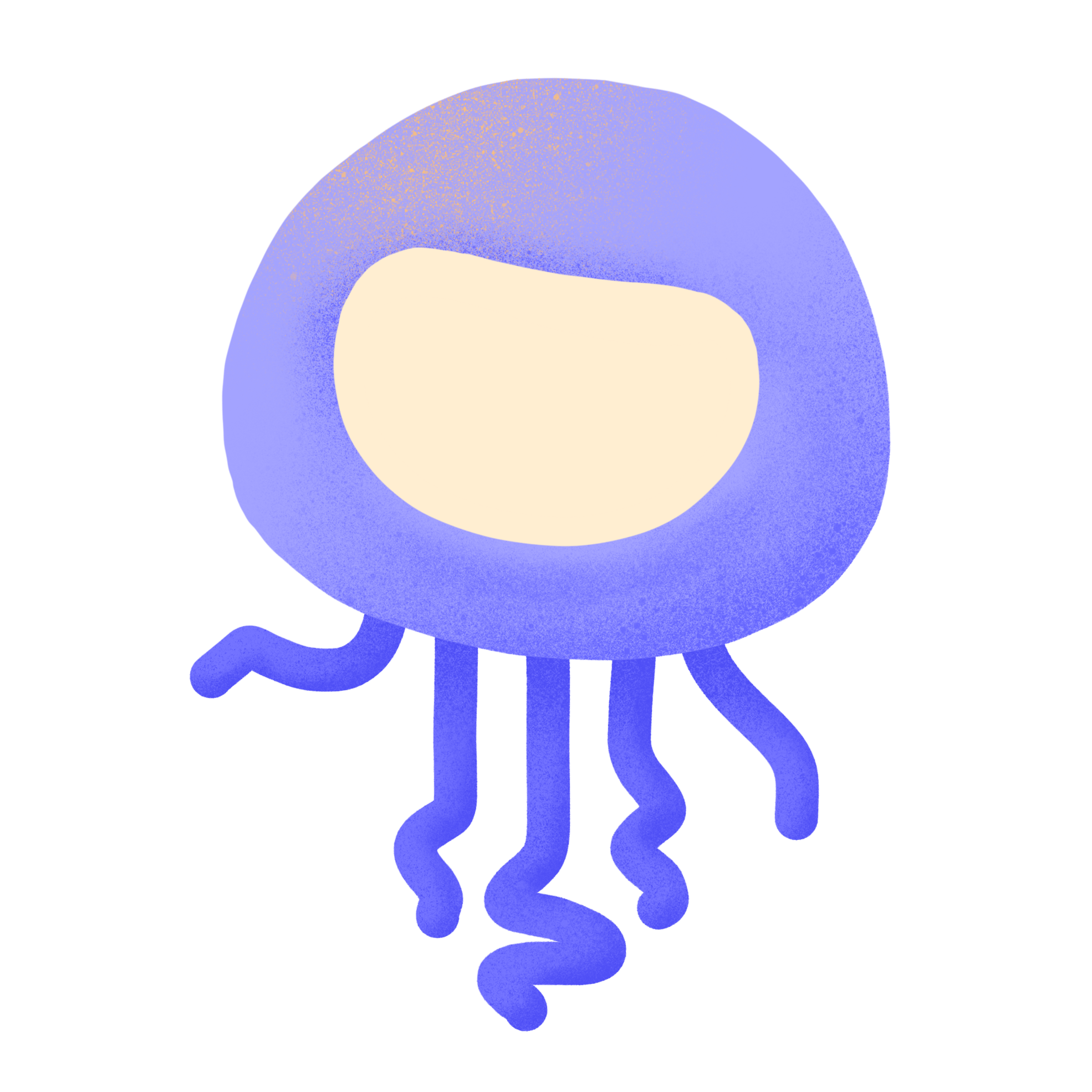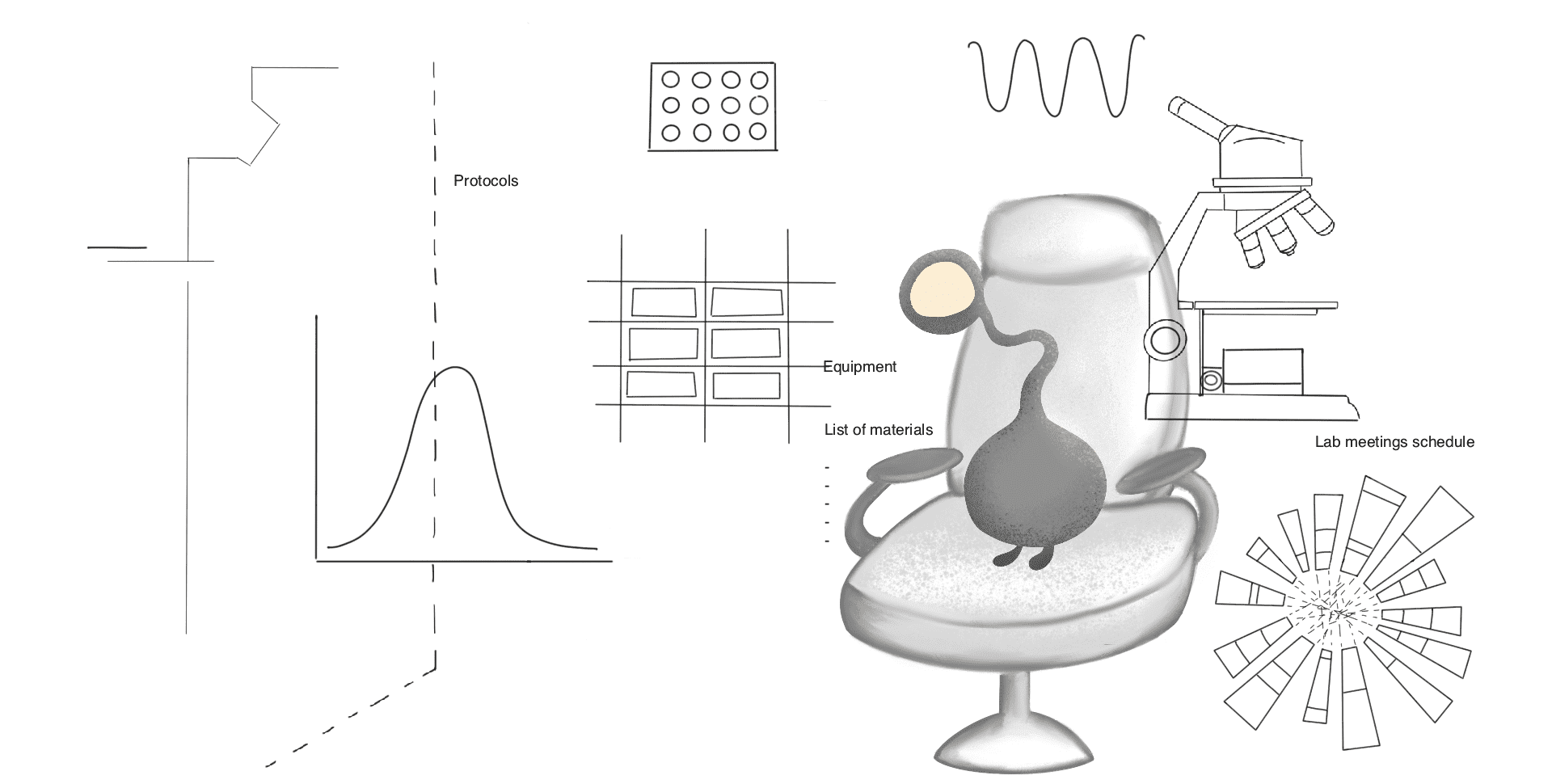I am a postdoctoral research associate by day and a lab manager by night. In this article, I want to share with you a bit about my career path and how I came to this dual role. I also want to tell you my opinion on skills and materials you should have to successfully manage a lab.
I obtained my MSc and PhD degrees at Tampere University in Finland. There, while publishing scientific articles in peer-reviewed journals as a researcher, I was very fortunate to have the chance to work very closely with my PI on laboratory management tasks. From this additional experience, I learned how to create management processes (Excel spreadsheets and Google Docs with rules, responsibilities, tasks, etc.), implement strategical plans, follow grant reports, finances, and deadlines, give lab and safety training for researchers, manage a microscopy facility, solve hiring-related matters, order lab materials and equipment, keep records of inventories, meet vendors, etc.
Now, as a postdoc in Prof. Densmore’s lab in Boston, I have had the chance to work independently and put both my research and management expertise into practice. It has been a completely different experience for me. I am learning various new management processes and becoming familiar with university bureaucracies and systems within a much larger infrastructure and a more dynamic research environment. The result of both experiences is what I wish to share in detail next.
I like to see research laboratories as small businesses. Just like CEOs of companies, in most laboratories, principal investigators (PIs) cannot overlook all aspects of the operation of their labs on their own. Maybe you are someone trying to qualify for a lab manager job position, or a postdoc (like me) having the chance to manage a lab for your PI, or you are an early career PI, who needs to get things on track to finally focus on research only. Thus, the truth is that, at some point, if not done by the PIs, they will necessarily have to hire individuals who can take operations and managing tasks over. Eventually, what happens is that this person is the first organized and experienced postdoc in the lab, who usually keep things running while running research in parallel. So here I am!
You may be asking, what skills and managing processes are central to my role as lab manager and what are some tips that can help in my lab management endeavors?
Tangible tips
- Organization, discipline, and responsiveness. My key suggestion is that you (or someone you are hiring as lab manager) must be extremely organized, disciplined, and responsive. Dealing with (sometimes boring) problems related to managing operations alongside (the not easy at all!) existing research challenges requires a very good strategy to control the flow of information in the lab. For that, you need software-based solutions that can give you fast and organized support to routinely track, store, and follow-up on different email conversations and important (perhaps boring, but must-keep) documents. You also want to respond rapidly and efficiently to your emails, making sure either you or someone (more specialized) provide fast solutions to problems. Never leave them for tomorrow! Tomorrow you will have as many emails you have today, believe me!
- Use software tools to track key information. To make lab operations run smoothly and keep track of all laboratory orders, equipment, materials, and vendors, you can choose from a variety of digital solutions, from simple Excel spreadsheets to more sophisticated Laboratory Information Management Systems (LIMSs). The latter, in particular, help you manage tasks for technicians and students, follow grant budgets per project and lab user, and most importantly, create and execute lab protocols in a semi-automated and reproducible way. There are many LIMS options in the market (see resources section below), but you can also find open-source software solutions, such as Aquarium (heavily used by our laboratory), developed by the Klavins Lab from University of Washington. Our daily tasks in the lab are mostly generated in project follow-up meetings, then organized into project outlines. From there, the manager or PI makes a shared Google Doc, where the bigger picture of past and future tasks are stored and later inserted into the LIMS software. The LIMS software facilitates designs of experiments and protocols to be used by members of the team. As the manager, I revise and approve the tasks before lab users start operating on them. This way, I can also help to better define strategies, protocols, resources, as well as to make modifications when things go wrong. I usually keep the team posted on the directions and roadmaps of our projects, along with our PI’s vision and plans. Finally, whenever a bundle of tasks or a milestone is complete, this information is presented in our group’s weekly meeting and updated in the project outline. After days of multiple users operating in the lab, information about used resources, inventory updates (what reagents are running low, etc.) are automatically updated and pop-up on a daily-basis as next orders are to be placed by me – very convenient!
- Training is key. As lab manager, it is often our job to train lab users and ensure safe practices in the laboratory environment. Nowadays, Boston University (and many other institutions) have an e-learning web-platform for lab safety training. On a higher level, the lab manager is responsible for creating Institutional Biosafety Committee (IBC) protocols for risk assessments, hazard descriptions, safety instructions and procedures, proper handling, storage and disposal of hazardous materials, and ensuring that the personnel using the laboratory adhere to health and safety policies. Further, managers must be able to respond quickly to breakdowns in systems or processes, being one of the first contacts for emergency situations after university emergency lines and responsible authorities are called. We also play a key role in training new members, informing them of the lab’s routine practices, making bookings of meeting rooms as needed, and planning lab cleaning days. You will need excellent time management skills to juggle all of these tasks!
Do you want to also do some research while managing lab operations? If you want to become a laboratory manager, you probably have an interest in research. You may have training in science, perhaps some industry experience, and the ability to lead and train people. While your role likely will not require research activities, exposure to the research environment will expand your understand of how research is conducted, how researchers operate, how equipment is maintained and operated, as well as the overall lab routine. Being a lab manager may inspire you to get involved with the research projects if possible or to move into a research position.
Do you want to follow the same path as me? I admit that combining science and managing a lab can be very challenging, but it is definitely rewarding. In my case, I have to work just as much as everyone else on my research project, while also making sure the lab environment, resources, and inventory are maintained. I also work with researchers to make sure their experiments are well-organized and in line with the research project visions. Not only do I have to help in coordinating the laboratory financially and operationally, but I have to propose new research projects, write grant proposals, and conduct experiments at the lab bench. This can be very exciting if you are a good fit for the job and indeed not all lab managers do the same roles – some have little to no involvement in research projects, some help with writing grants and others do not. In my case, I find that combining both expertise is cool but not trivial. You must have clear goals and a motivation to do it. In my case, I am trying to prepare myself to become a PI. Am I on the right track? I hope so!
Useful resources
Lab Management and Automation in Bio-foundries
“Building a global alliance of biofoundries”, by Nathan Hillson, Nature Communications.
“The automated lab” by Erika Check Hayden, Nature
”With all due respect to Maholo, lab automation isn't anthropomorphic”, by David W McClymont, Nature Biotechnology
List of LIMS software available
Make comparisons and select the software tool that best fits your needs. The list is long, varying from free-basic to paid-complex solutions and market-applications, such as Psyche Systems, Polytech LIS, LIMSey, Lockbox LIMS, Dendi LIS, labfolder Electronic Lab Notebook, Prolis, ApolloLIMS, and so on.
Lab management skills and training
"Management for beginners: So you're a principal investigator - now what?", The Scientist magazine
"How to start a lab when funds are tight" by Elie Dolgin, Nature
“The key to a happy lab life is in the manual” by Mariam Aly, Nature
"Seven steps towards health and happiness in the lab" by Fernando T. Maestre, Nature
"Making the Right Moves: A Practical Guide to Scientific Management for Postdocs and New Faculty" by Burroughs Welcome Fund and Howard Hughes Medical Institute
"Lab Dynamics: Management and Leadership Skills for Scientists" by Carl Cohen and Suzanne Cohen


Create an account or sign in to leave your thoughts or ask a question.